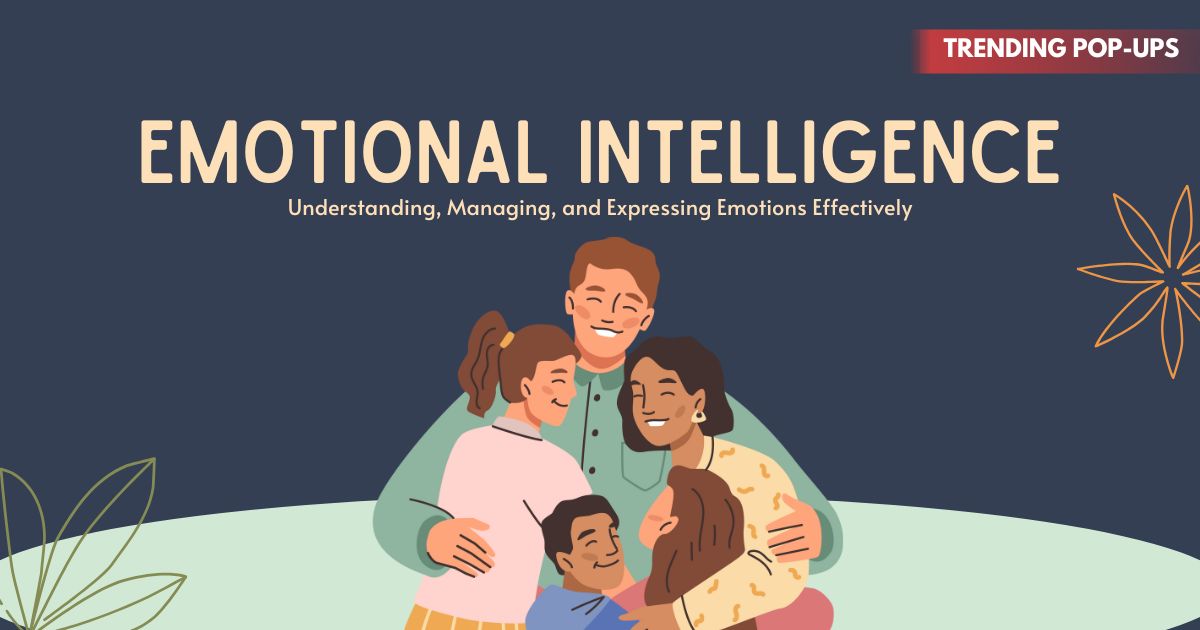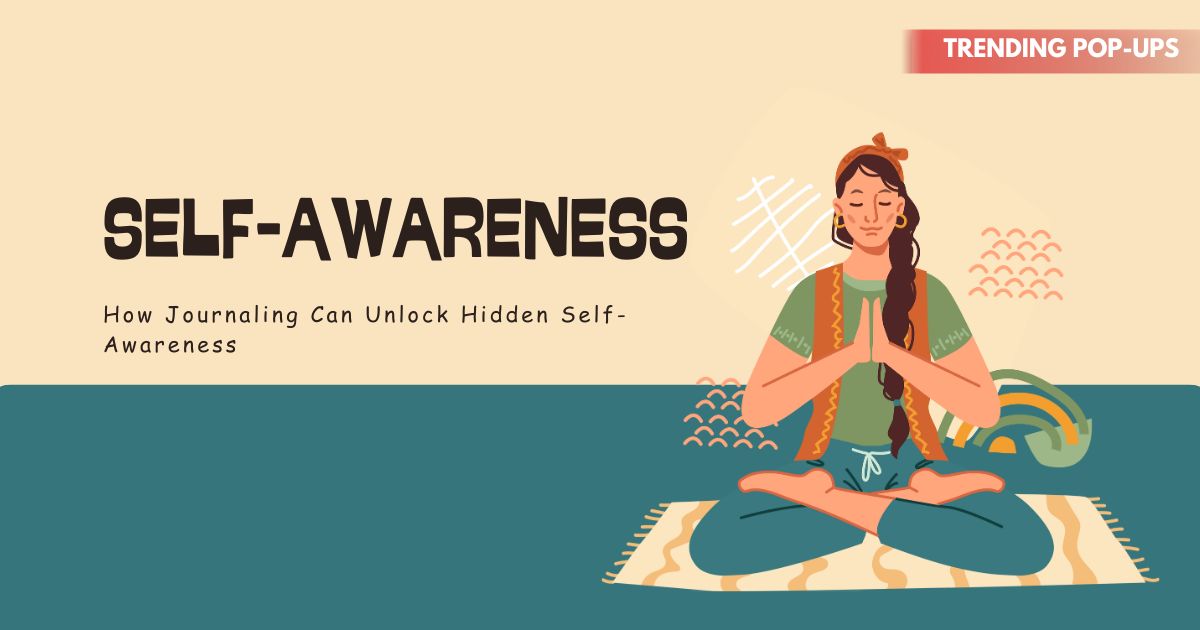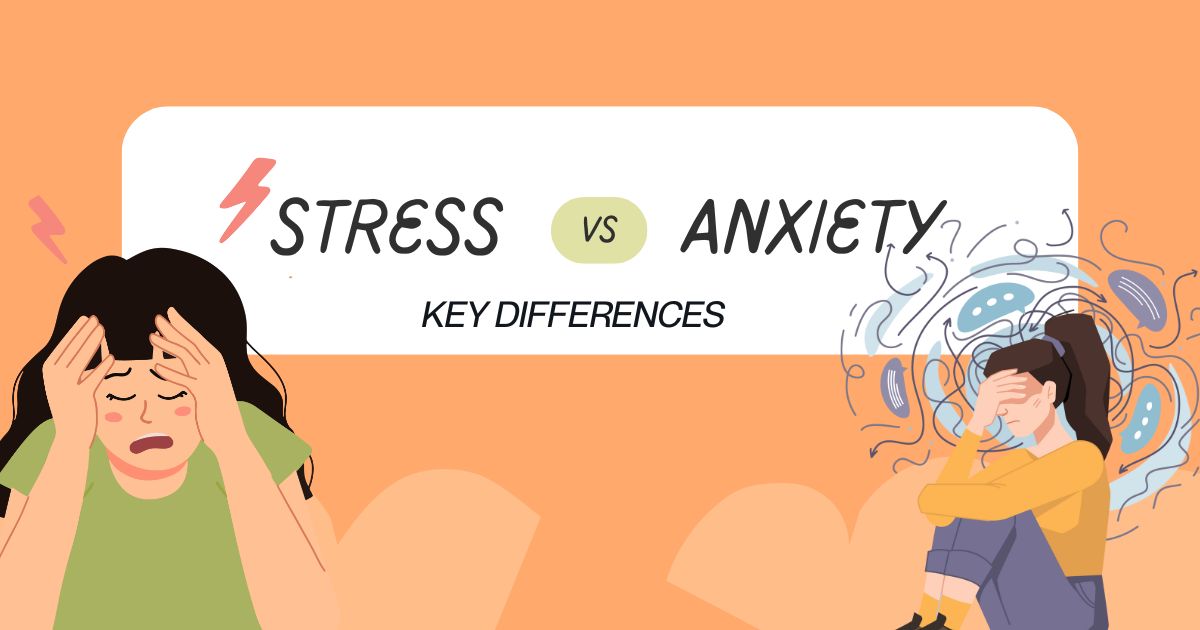Emotional Intelligence (EI), also known as Emotional Quotient (EQ), has become one of the most critical skills in personal development, workplace success, and healthy relationships. Unlike Intelligence Quotient (IQ), which measures cognitive ability, emotional intelligence focuses on understanding and managing emotions—both your own and others’. Research shows that individuals with high EQ are better at communication, conflict resolution, leadership, and overall mental well-being.
This article will provide a detailed understanding of emotional intelligence, its key components, benefits, and ways to develop it for a balanced and successful life.
What Is Emotional Intelligence?
Emotional intelligence is the ability to recognize, understand, and regulate emotions while also being empathetic towards others. Psychologists Peter Salovey and John Mayer first coined the term in the 1990s, but it was popularized by Daniel Goleman through his book Emotional Intelligence.
At its core, EI helps us interpret emotional cues, make thoughtful decisions, and foster meaningful human connections.
The Five Components of Emotional Intelligence
1. Self-Awareness
Self-awareness is the foundation of emotional intelligence. It means recognizing your emotions and understanding how they influence your behavior. Individuals with high self-awareness are less likely to be overwhelmed by stress or react impulsively.
2. Self-Regulation
This refers to the ability to control emotional responses, manage impulses, and adapt to changing situations. Self-regulation prevents negative reactions like anger or anxiety from interfering with decision-making.
3. Motivation
Emotionally intelligent people are often self-motivated. They set goals, stay committed, and remain resilient even when challenges arise. Their internal drive keeps them focused on long-term success.
4. Empathy
Empathy is the ability to understand and share the feelings of others. It helps build strong interpersonal relationships and fosters trust, collaboration, and compassion.
5. Social Skills
Effective communication, active listening, conflict resolution, and leadership fall under social skills. People with strong social skills can navigate social situations with ease and build meaningful connections.
Why Emotional Intelligence Matters
1. Improves Relationships
High EQ helps in resolving conflicts, fostering empathy, and maintaining healthy communication, which strengthens personal and professional relationships.
2. Boosts Mental Health
By managing emotions effectively, individuals can reduce stress, anxiety, and depression, leading to greater emotional stability.
3. Enhances Workplace Success
In professional environments, emotional intelligence is a top leadership trait. Leaders with high EQ inspire teams, manage stress, and make thoughtful decisions.
4. Better Decision-Making
Emotionally intelligent people evaluate situations logically while considering emotional perspectives, resulting in balanced decision-making.
5. Increases Resilience
High EQ individuals adapt more easily to setbacks, view challenges positively, and recover faster from difficulties.
How to Develop Emotional Intelligence
1. Practice Mindfulness
Mindfulness techniques, such as meditation and deep breathing, improve self-awareness and help you stay grounded in the present moment.
2. Improve Communication Skills
Active listening, asking clarifying questions, and maintaining open body language strengthen social skills and empathy.
3. Reflect on Your Emotions
Journaling or self-reflection helps you identify emotional triggers and patterns in behavior.
4. Seek Feedback
Constructive feedback from trusted peers or mentors can provide valuable insights into areas where you can improve your emotional awareness.
5. Build Empathy
Put yourself in others’ shoes, practice compassion, and try to understand perspectives different from your own.
6. Manage Stress Effectively
Techniques like exercise, meditation, or relaxation can help regulate emotional responses during high-stress situations.
Emotional Intelligence in the Workplace
In modern workplaces, EI is considered as important—if not more—than technical skills. Employees with strong emotional intelligence contribute to teamwork, productivity, and organizational culture. Companies now incorporate EI assessments in leadership training and recruitment to build stronger teams.
Emotional Intelligence vs. IQ
While IQ focuses on analytical thinking, problem-solving, and technical knowledge, emotional intelligence deals with empathy, communication, and self-regulation. Both are important, but EQ plays a larger role in long-term personal and professional success.
Benefits of High Emotional Intelligence
-
Stronger personal and professional relationships
-
Reduced stress and better mental health
-
Improved leadership and teamwork abilities
-
Better adaptability to challenges
-
Increased overall life satisfaction
Conclusion
Understanding emotional intelligence is essential for anyone aiming to lead a balanced, fulfilling life. By developing self-awareness, empathy, and social skills, individuals can strengthen relationships, improve workplace success, and maintain emotional well-being.
Emotional intelligence is not fixed—it can be developed with practice, reflection, and consistent effort. The journey toward higher EQ enhances not only your life but also positively impacts those around you.
Also Read : Coping with Loneliness: Practical Strategies
FAQs
Q1. Can emotional intelligence be learned?
Yes, unlike IQ, emotional intelligence can be developed through self-reflection, mindfulness, and practice.
Q2. Why is emotional intelligence important in leadership?
Leaders with high EQ can inspire teams, manage conflicts, and foster collaboration, making them more effective.
Q3. How does emotional intelligence improve mental health?
It helps individuals regulate stress, reduce anxiety, and maintain emotional stability.
Q4. Is EQ more important than IQ?
Both are important, but EQ often plays a bigger role in communication, resilience, and relationship-building.
Q5. What are simple ways to improve emotional intelligence daily?
Practicing mindfulness, journaling, and active listening are effective ways to enhance EQ.



